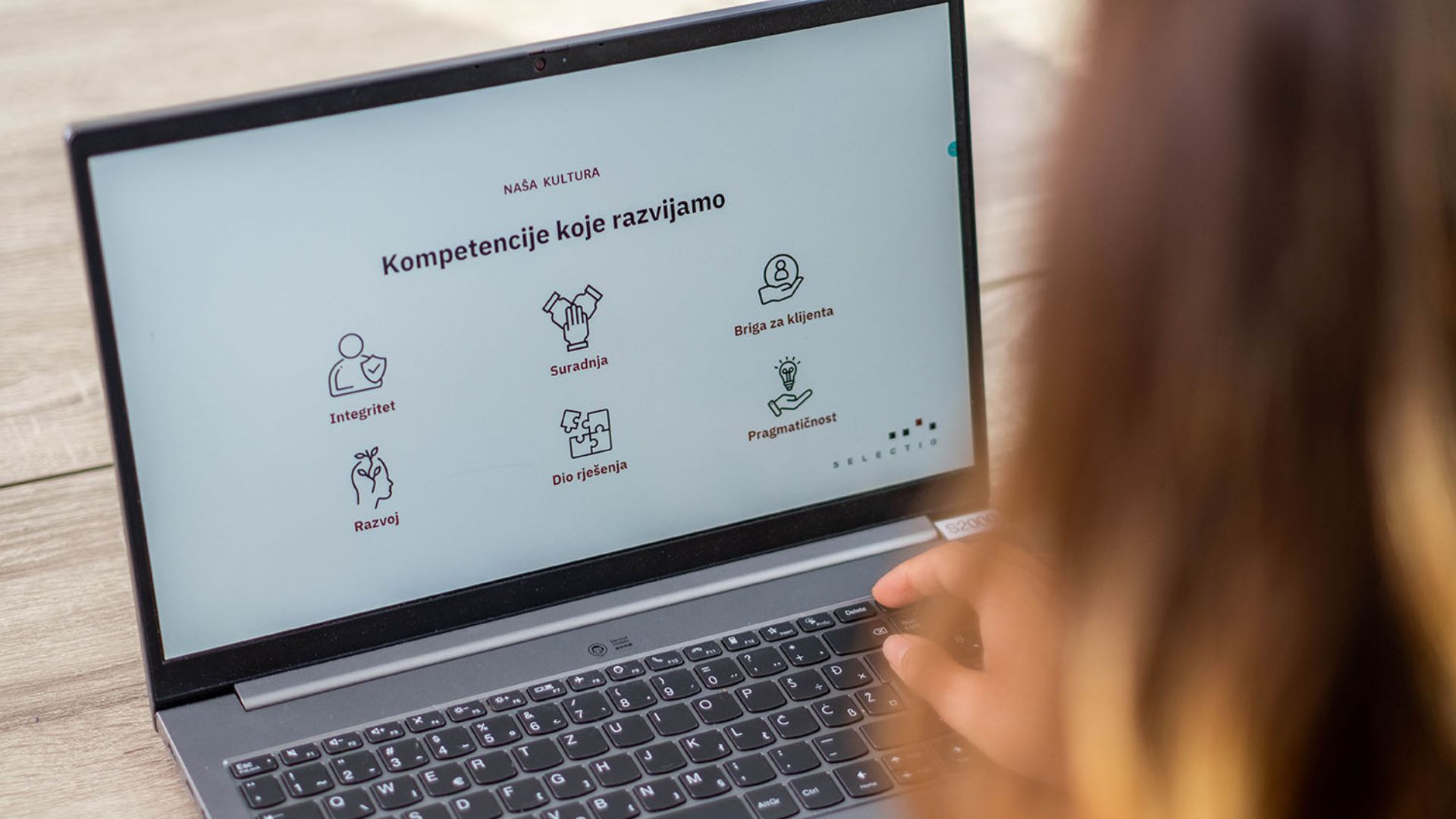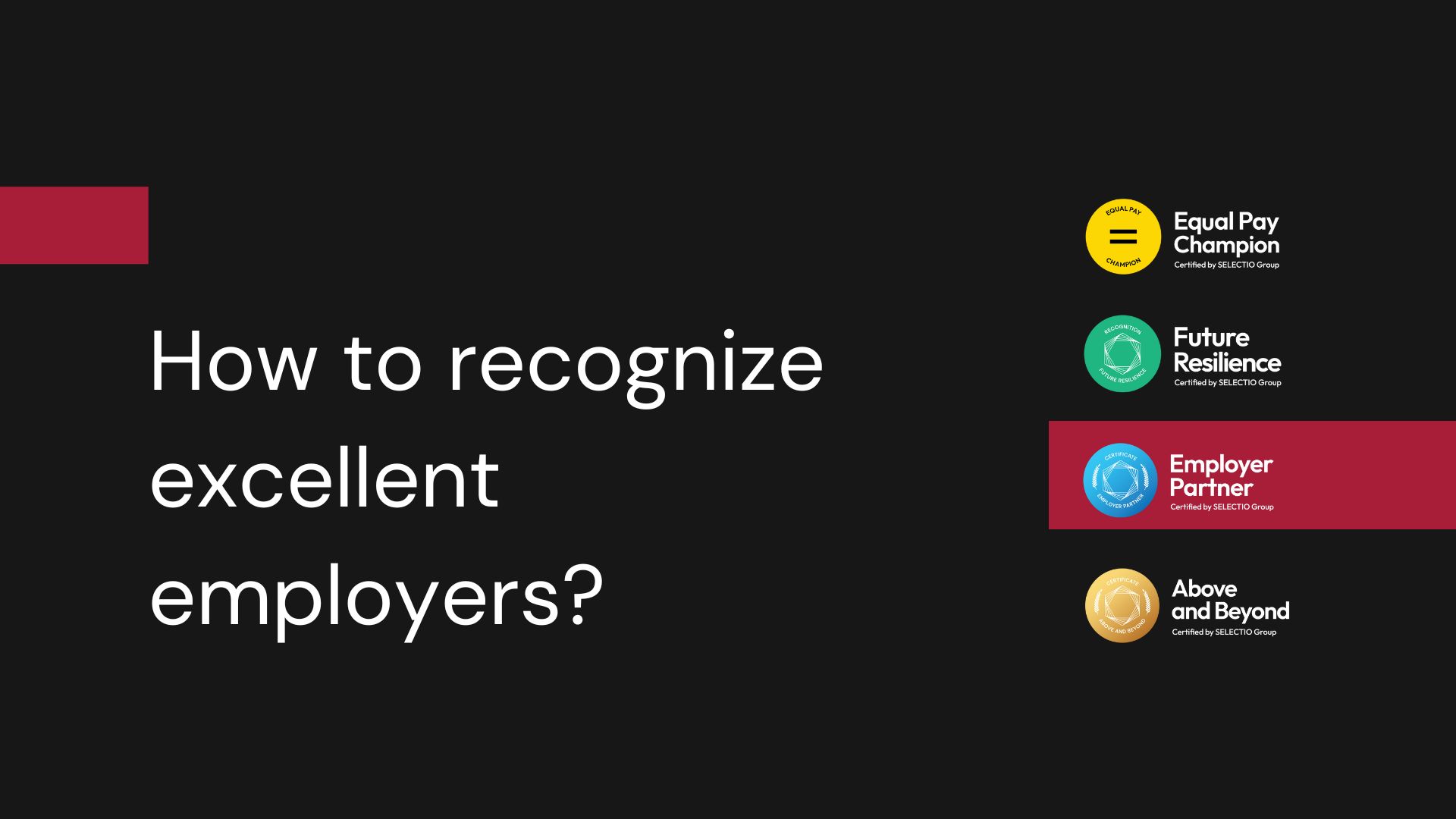Job interviews are stressful and challenging experiences for most candidates, so it's beneficial to read the advice of HR experts on how to prepare beforehand. Recruiters from the SELECTIO Group, who interview candidates for executive, middle management, and specialist positions across nearly all industries, confirm that every word spoken during a job interview can be crucial. However, they also emphasize that good preparation can boost your confidence, thereby increasing your chances of advancing to the next round.
Although some of your answers might seem correct to you, you often realize they didn't present you in the expected positive light. To prevent this and to take control of your responses during the selection process, we've compiled a guide on what answers to avoid in a job interview.

Quality Preparation and Concrete Examples
Since you’re reading this article, you likely already know the most common questions you might face in an interview. Standard questions are asked to check your work experience in the context of the tasks you might encounter in the new job. Therefore, prepare answers about your motivation, strengths, and weaknesses, and highlight how you handle stress.
Additionally, study the responsibilities, competencies, and requirements of the position. Align them with your work experience to show the employer you meet them. Concrete examples where you try to quantify (show in numbers) as many segments as possible will demonstrate that you have the necessary qualifications for the position.
Don’t memorize everything word-for-word. Instead, focus on the key information you want to convey. Practice your answers so that you can deliver them smoothly in a stressful situation without too much hesitation. Take enough time to ensure that your answers cover everything relevant to the new position.
Practice in Front of a Mirror
You can practice all expected questions at home in front of a mirror or using a webcam. This kind of practice has proven beneficial in helping you relax before the actual interview.
Simulated interviews have also shown to be useful practices for reducing the uncertainty of a real job interview. You can ask a trusted family member or friend to play the role of the employer and conduct the interview with you. These methods will make you appear more confident and competent in front of the employer.
Avoid Speaking Negatively About Yourself
While preparing for the interview, you’ve surely thought about your strengths and weaknesses. Although it’s good to show self-awareness in understanding your knowledge and abilities and to maintain a level of humility, avoid speaking negatively about yourself.
This may seem like a simple task, but many candidates talk about things they can’t do, don’t know, or are bad at, which only shows a lack of confidence. It’s more effective to highlight and emphasize the skills that can concretely contribute to the organization’s goals and vision.
Therefore, never start the interview with aspects of the job that might be problematic for you. Instead, highlight your strengths and your readiness to face new challenges. Reframe your answers to express positivity and confidence.
Avoid Speaking Negatively About Previous Employers
Refrain from criticizing your previous employer or job. Instead, focus on what you have learned and highlight that you are currently seeking new development opportunities. If you need to share information to explain certain situations or challenges you faced, use expressions that reflect your professionalism.
Show the self-awareness that your disagreement with an employer doesn’t mean you’ll speak negatively about them. This demonstrates your ability to remain positive and professional regardless of the situation. If you are overly critical, the interviewer might think, "What will this person later say about our organization?"
Don’t Appear Disinterested
Never say during a job interview that you’re not very interested in the position or that you applied with no obligations, just to see "what's out there." This doesn’t just refer to words, but also to tone of voice and body language.
Candidates often say one thing, but their bodies and tone convey the opposite. For example, if you say you’re "interested in the position" but do so in a flat tone, without a smile or eye contact, it can make establishing a trusting relationship difficult.

Avoid Asking or Sharing Too Much Personal Information
Employers want to get to know you through your experience to assess if you fit the position, if you’ll get along with other employees, especially with different groups, and if you bring added value to the job and company.
What you should avoid is discussing personal topics like marital status, family, or children, or, even less appropriately, sharing detailed family and personal problems. If a private situation is relevant to the career decisions you’ve made, such as changing jobs, HR experts recommend briefly touching on it without going into detail. Instead, provide just enough information for the interviewers to better understand your current situation.
Similarly, it’s not recommended to ask the employer personal questions. Among the worst questions you can ask in a job interview are those related to marital status, age, salary, or personal job preferences.
Avoid Asking Questions You Should Already Know the Answers To
Asking questions for which you should have already found the answers during your interview preparation leaves an unprofessional impression. Questions about the year the company was founded or its ownership structure, which are publicly available, can signal to interviewers that you’re not sufficiently motivated.
Instead, do your research and ask deeper questions that cannot be easily answered. Good examples are questions like, "How would you describe the company culture?" or "Are there opportunities for advancement within this role?"
The employer will likely ask you at the beginning, "What do you know about us?" This is an opportunity to show that you’ve prepared well for the interview and that you’ve thoroughly studied all available information about the company (yes, including its social media). Through media releases, the official website, and basic financial indicators that you can easily check on specialized sites, you can learn more about the company’s values, projects, and current events. This will give you a clearer picture of the team you might work with.
So avoid statements like, "I didn’t have time to research your company" or "What does your company do?" These will likely deter any potential employer. They show how you approach situations and "tasks" for which you’ve taken personal responsibility, even if it’s not a position you’re intensely motivated for.
Unclear and Unconnected Answers Reveal Insecurity
Unclear or unconnected answers to questions are one of the most common mistakes interviewers and HR experts notice. When you speak unclearly, you give the impression that you don’t have a clear understanding of what you’re talking about or that you’re trying to avoid or hide something.
In this situation, preparation is key. Therefore, think in advance about how you’ll efficiently present your experience and give concise but substantial answers. To prepare as effectively as possible, you can use the STAR method to structure your answers. STAR stands for Situation, Task, Action, and Result. This method helps you provide specific examples that show how you handled a certain situation, what you did, and what you achieved. This way, you demonstrate how you apply your skills, solve problems, and achieve results without unnecessary details or digressions.

Claiming You’ve Never Made a Mistake Isn’t a Good Idea
Avoid statements like, "I’ve never had a failure or made a mistake." No one is perfect nor can anyone expect constant success and flawless work. Believing you’re perfect usually indicates an inability to recognize personal mistakes, take responsibility, and face consequences.
This gives the impression of someone who shifts the blame onto others and might not be a good team player. Prepare for the job interview with examples of situations where you made a mistake or a poor decision. This will demonstrate your ability to take responsibility and learn from your own experience.
Avoid Talking Too Much or Too Little
Sometimes it’s not about what you answered, but how and how much. A common mistake is talking too much or too little during the interview. If you talk too much, you can come across as unfocused and unstructured, unaware of the time allocated for the conversation, or disrespectful to the interviewer.
When you speak too little, you give the impression of being shy, unconvincing, or bored. An interview is a conversation, so avoid making your interviewer "drag" every answer out of you with follow-up questions. To avoid this, practice your communication skills before the interview. Prepare short and clear answers to common questions, such as your strengths, weaknesses, achievements, and goals.
Use positive and professional language and be aware of your "fillers" to minimize them. Listen to the interviewer’s questions and ask for clarification if necessary. Before answering, take a short pause and avoid interrupting the interviewer.
Avoid Using Unprofessional Expressions
Using unprofessional expressions can portray you in a negative light. No matter how relaxed and informal the atmosphere of the job interview might be, inappropriate expressions or vulgar language can give the impression that you’re not serious or professional.
During your preparation for the interview, pay attention to your vocabulary and strive to express yourself in a way that reflects your professionalism and respect for the interviewer.
Being Aggressively Ambitious and Overconfident is Undesirable
Recruiters sometimes witness inappropriate answers to the question, "Where do you see yourself in five years or in the future?" Answers like, "In your position," or worse, "In your boss’s position," are not good answers.
Your answer should show ambition and a desire for growth and development. It should ideally highlight your understanding of the business potential and skills you bring. However, it’s not in your favour to show disrespect, aggressive ambition, or unfounded overconfidence.
The same goes for answers like, "I don’t see any significant areas for improvement and development, I’ve learned everything so far." Avoid direct questions like, "Will I be able to advance to the next position within a year?"
Don't ask for feedback immediately during the interview
At the end of a job interview, never ask questions like: "How did I do, do I have a chance for the next round?" or "Will I get the job?" Although asking for feedback is a good practice, doing so during the interview can be awkward and inappropriate.
The final decision about a candidate is generally not made on the spot, often involving the calibration of impressions from multiple people or data. Therefore, the person conducting the interview cannot give you an answer without appearing unprofessional. However, you can always ask when you can expect feedback.
By avoiding these not-so-rare mistakes, you can present yourself in the best light to the employer and leave a positive impression based on your achievements and personality. Remember that thorough preparation is half the job and the key to success. This is true for both inexperienced and experienced candidates – everyone sometimes faces feelings of insecurity and anxiety.
If you are at the beginning of your career path, consider consulting with career advisors. This includes feedback on the structure and content of your resume, interview tips, assessment of strengths and weaknesses, and defining opportunities in the job market. Young people just entering the job market can get such information as part of Career catapult, the latest career development program aimed at high school and college students.

Let the employer mention the salary
The interview is a mutual acquaintance process that focuses on broader topics than just salary. The goal is to get an opportunity to assess how well a certain job or employer suits you, but also for them to assess you. The question of salary is certainly important and something you will discuss, but it is usually best for the employer to bring up the topic so that you do not give the impression that it is your only motivation.
The same goes for detailed questions about all the benefits and working conditions you would have. Discussing how you need to leave work at 4 PM every Monday and Wednesday is better left for the final stages of the selection process. These topics are best covered during the offer negotiation phase.
By asking such questions too early in the selection process, you risk coming across as presumptuous to the interviewer. This can also give a wrong impression of your priorities. At this stage, they should be focused on understanding the position itself and the ways you can contribute to the success of the organization.
What to ask the employer?
Now that you know what not to ask, it's time to prepare the questions you want and can ask your potential employer. Since you are also evaluating the employer during the interview, prepare questions that will help you get to know the organizational culture.
Shape your questions according to the specific requirements of your job and industry, and it’s not a bad idea to ask what a typical workday looks like. Check the company's business plans for the upcoming period and think about how they fit into your long-term vision of personal progress.
Check if the company has certifications indicating it is a desirable place to work, such as Employer Partner, Above and Beyond, Future Resilience, and Equal Pay Champion. These certifications signal that the employer invests in employee well-being, pay equality and the quality of the entire HR system on which a healthy work environment is based. These organizations reward talent and exceptional achievements and offer opportunities for employee development, with a special emphasis on health and education.

On the day of the interview, stay calm and optimistic
Once you have prepared for the interview and practised your answers, there are just a few more things to pay attention to. Choose appropriate attire, regardless of whether the interview is in person or online. The clothes you wear to a job interview should be professional. If you’re unsure what to wear, it’s always better to be slightly more formal than too casual.
Also, prepare all the documents you will need, such as copies of your resume, certificates, and portfolios, and have a place ready to take notes so you can jot down important information. Finally, arrive a few minutes early to the interview to make a good impression and show that you are organized and respect others' time.
Remember that you have already passed one round of the selection process and that your resume met the basic criteria of the competition. You are there because the employer believes your skills could fit into their team; now it’s just a matter of whether you are the right choice for their company, but also if the company is the best option for you.



